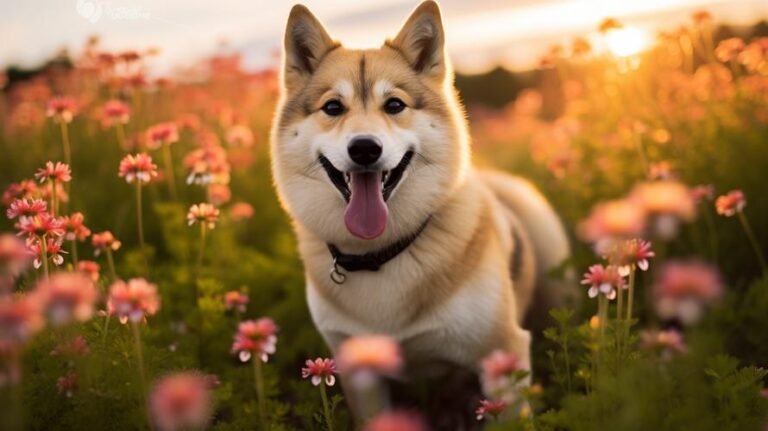Did you know that the term “Buhund” comes from the Norwegian words “bu” meaning home or farm, and “hund” meaning dog? This directly translates to “homestead dog” or “farm dog,” and rightly so, as Norwegian Buhunds have been reliable companions to Viking farmers for centuries. This is only one fascinating aspect of this breed’s story. Let’s delve deeper into it, and specifically, focus on the health aspect of these phenomenal dogs.
Coming to the central question, “Is the Norwegian Buhund a generally healthy breed?” The answer is a resounding “Yes!” However, don’t stop reading here. Each breed, including the Norwegian Buhund, has the potential for certain genetic health problems. That’s why before bringing any pooch home, one should do a proper health history check.
Let’s dive into the world of the Norwegian Buhund – its history, general health, typical concerns, and precautions an owner should take to ensure a long, robust life for your potential new best friend.
Back in history, the Norwegian Buhund proved essential to the livelihood of Norwegian farmers. From herding livestock and guarding property to hunting game, they were jack-of-all-trades. They were also believed to be travel companions of the early Vikings, which perhaps adds to their adventurous spirit and excellent adaptability. Bred to withstand the harsh conditions of Norway, these dogs have proven to be exceptionally sturdy and robust, characteristics that they retain today.
Most Buhunds live a relatively long and healthy life, often reaching the age of 13-15 years. The breed’s general healthiness is partially due to extensive efforts from breeders and the Norwegian Buhund Club of America (NBCA) to maintain a healthy and diverse gene pool. They are not different from other breeds that may, however, have to face certain health conditions.
One such concern is Hip Dysplasia, a hereditary condition where the thighbone doesn’t fit neatly into the hip joint. Dogs may experience pain and lameness on one or both rear legs. However, with proper health screenings, X-rays, and in severe cases, surgeries, this ailment is often treatable.
Another issue Buhunds might face is Von Willebrand’s Disease (vWD), a common genetic disorder that prevents blood from clotting properly. This disease shows symptoms like nosebleeds, gum bleeding, or prolonged bleeding after surgery or injury. Early diagnosis can help manage this condition and guide your dog towards a better quality of life.
Cataracts, a condition that causes blurry vision and even potential blindness, is also somewhat common. If your Buhund shows signs of struggling with visibility or bumping into objects, a swift diagnosis followed by surgery can help restore eyesight in many cases.
Despite these potential health risks, it’s significant to note that these conditions aren’t the rule, rather the exceptions. A study conducted by the NBCA revealed that the overwhelming majority of Buhunds are completely healthy.
Nevertheless, to ensure your Buhund to be as healthy as possible, here are some handy tips:
1. Health Check Before Adoption: Always choose responsible breeders who perform genetic testing and health checks in puppies before selling.
2. Regular Vet Visits: Regular check-ups keep a tab on your canine’s health, ensuring timely intervention in case a problem arises.
3. Balanced Nutrition: Provide a diet with the right balance of protein, fats, and carbohydrates. Avoid overfeeding to prevent obesity-related issues.
4. Physical Activity: Buhunds are active, working dogs. Regular exercise and mental stimulation keep them in shape and fight off boredom.
5. Regular Eye Check-ups: Early detection of eye conditions like Cataracts can save your pet from discomfort and prevent blindness.
6. Dental Hygiene: Regular cleaning of teeth with dog-safe toothpaste can prevent gum disease and other oral problems.
In conclusion, the odds are high that a Norwegian Buhund will live a long and healthy life. Like any breed, they are prone to certain genetic conditions, but responsible breeding and attentive care can circumvent most of these issues. Despite any potential health concerns, one thing is for sure; Buhunds are vibrant and enthusiastic companions, whose zest for life remains undiminished, making them a great addition to active households who would embrace their vitality!
Remember, as the Norwegians say, “En glad hund, et glad hjem,” which translates to “A happy dog, a happy home.” And what could make us, as proud pet owners, happier than ensuring our beloved four-legged friends lead the healthiest lives possible? By choosing the right breeder, regularly visiting the vet, and providing an active and nourishing lifestyle, your Buhund will reward you with a lifetime of loyalty, joy, and Viking-level adventure!



